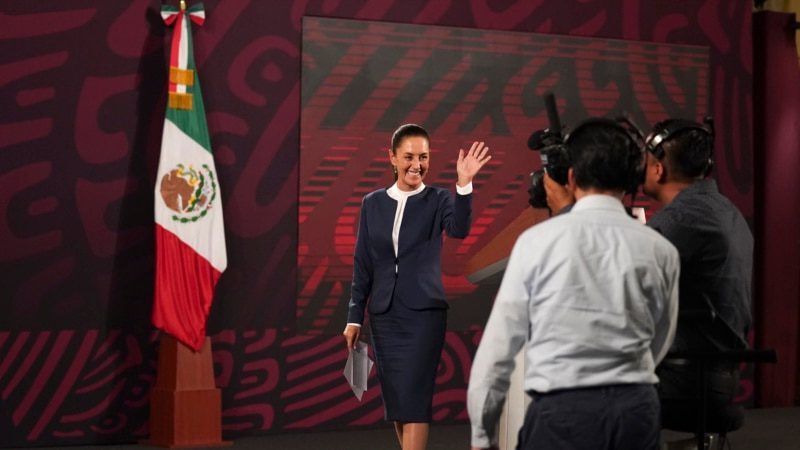Mexico City — Tensions linger in the air between Mexico and Spain, and it’s not just political — it’s personal. This story isn’t just about protocols ignored or monarchs snubbed; it’s about the weight of history pressing on the present, and how nations, like people, often struggle to reconcile their pasts.
Last Friday, Mexico extended a hand toward a potential diplomatic healing by proposing a “reunion de desagravio” — a meeting to smooth over the hurt feelings caused by the absence of Spain’s King Felipe VI from the inauguration of Claudia Sheinbaum, Mexico’s new president. But the question remains: Can a relationship mired in centuries of tension ever truly heal?
The Ghost of Colonization: Heavy Burden on Diplomatic Ties
It’s been five years since Andrés Manuel López Obrador (AMLO), the outgoing Mexican president, sent a letter to Spain’s king, requesting an apology for the Spanish conquest of Mexico over 500 years ago. The silence in response was louder than any words might have been. And it stung — deeply. López Obrador’s call for an apology wasn’t merely symbolic; it reflected the wounds of a nation still grappling with the legacy of colonization.
The refusal to invite King Felipe VI to Sheinbaum’s inauguration this past week is just the latest chapter in a saga of diplomatic tension. And while Spain’s Prime Minister, Pedro Sánchez, reacted with frustration — calling the exclusion of the king “inexplicable” — one has to wonder if this conflict is less about etiquette and more about the unresolved emotions of history.
President’s Pride and a Monarch’s Silence
“Was it disrespectful?” AMLO asked rhetorically during one of his final press briefings. He wasn’t referring to Mexico’s decision to exclude the king from the inauguration, but rather to the insinuation that he had been the one pulling the strings behind Sheinbaum’s decision. The pride of a nation’s leadership was on full display. “The decision was hers, and it was based on principles,” AMLO stated firmly.
But beneath the political language, there’s a more human story. Imagine, for a moment, the deep sense of pride one might feel, standing at the helm of a country that had long been under foreign rule. Now imagine the weight of carrying the unresolved legacy of that colonization. For AMLO and Sheinbaum, the request for an apology was not about reopening old wounds but about allowing them to heal properly — a plea for recognition of pain, for acknowledgment.
Yet Spain remains silent, steadfast in its refusal to apologize for its colonial past. It’s a silence that speaks volumes — and one that continues to stir tension.
Sheinbaum’s Vision: Can We Move Beyond the Past?
Sheinbaum, in her first major international challenge, has shown openness to mending the relationship. “I trust that our government will be a starting point,” she said, hoping to find “ways of understanding” between two nations with deep-rooted cultural, economic, and social ties. But there is a quiet undercurrent here — one that suggests healing might not come easily.
Can two nations, so intimately linked by a painful past, truly move forward? Or is there a deeper question at play — can one nation demand an apology for something that happened centuries ago, while the other insists that history be left in the past?
The Economic Ties That Bind: Is Business the Bridge?
Behind the diplomatic tension lies a bustling economic relationship that neither country can afford to ignore. Over 6,000 Spanish companies operate in Mexico, contributing investments worth more than $25 billion. These are not mere numbers; they represent families, livelihoods, and futures. There’s a practical reality to this relationship that complicates the diplomatic spat.
Economic ties often have a way of smoothing over political disagreements. But can they do the same for historical ones? Alicia Bárcena, Mexico’s foreign minister, emphasized the “excellent” relations Mexico continues to have with Spain’s Sánchez, despite the current rift. “The way forward is through dialogue,” she asserted, pushing for the proposed meeting to clear the air.
But one has to ask, as countries with strong economic ties, is it even possible to keep personal histories from tainting the future?
The Personal Weight of Diplomatic History
Diplomatic tensions are often seen as distant, high-stakes games played by powerful leaders. But these tensions ripple out, affecting the lives of ordinary people, businesses, and even the cultural exchange between nations. Imagine, for a moment, what it’s like for a young Mexican, studying Spanish literature, now questioning what that connection means in light of the current political climate. Or consider a Spanish expatriate living in Mexico, feeling the weight of centuries of history hanging over their head, uncertain of what the future holds for their adopted home.
Diplomacy is personal. And when history is involved, it’s impossible to disentangle the two.
Moving Forward: Can History and the Present Coexist?
As we look to the future, there’s one undeniable truth: the ties between Mexico and Spain are too deep, too intertwined, to sever. Whether it’s in the realm of economics, culture, or diplomacy, these two nations are bound by their shared history — for better or worse.
But the question remains: Can they find a way to move beyond the shadows of the past while honoring the weight of that history? Or will the echoes of colonization continue to shape their future, leaving both nations in a delicate dance of diplomacy, forever balancing between apology and progress?
In the end, perhaps the answer lies not in diplomatic meetings or political gestures, but in the willingness of both nations to listen — truly listen — to the stories of the past, while building a future that acknowledges, rather than ignores, the weight of history.


